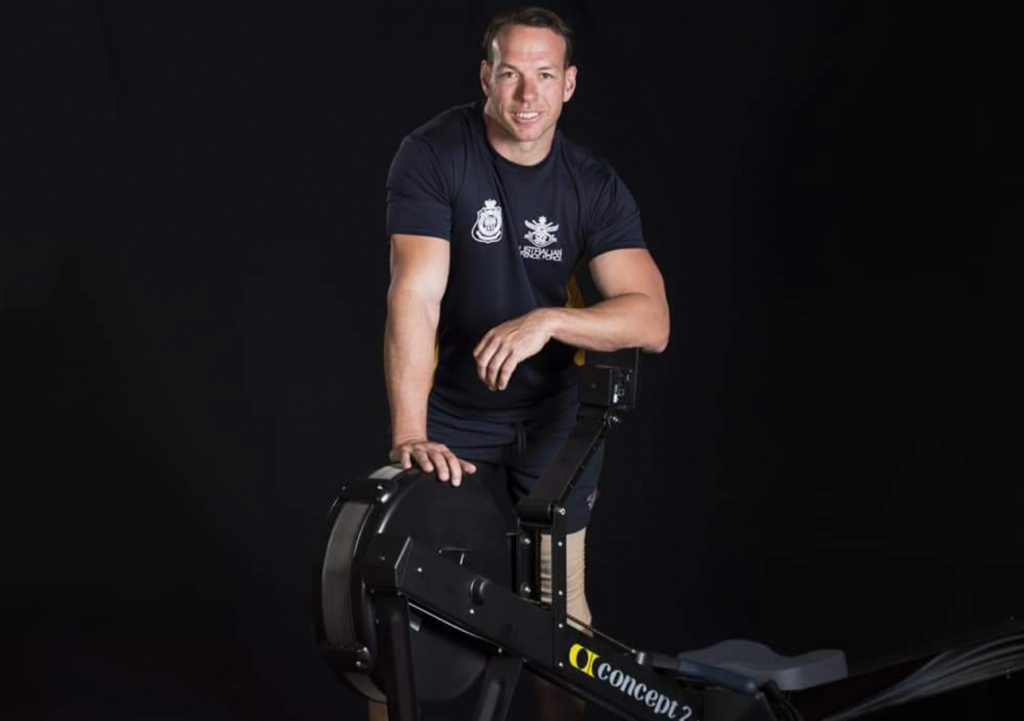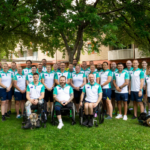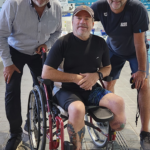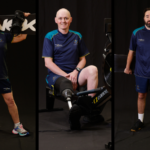
From Parachute Rigger to Chain Ripper
Pete Brown lives in Townsville and will discharge from the army in a matter of weeks. He still hasn’t decided if he’ll stay in North Queensland as he looks forward to the next phase of his life.
It’s a big step and how he feels about transitioning out changes day-by-day and week-by-week.
“To begin with I felt apprehensive. Not knowing what’s going to happen can be nerve-racking,” says Pete. “But it’s time to move on and by being proactive and getting things done early it’s not as stressful as it could be. But I’m still apprehensive!”
By working closely with the rehabilitation consultant from his base and going to a DCO transition seminar, Pete’s been moving through the process step-by-step for some time. Come his final day, he’ll make sure he’s ready – just like when he prepares for a major indoor rowing event.
Records tumbling
To be fair, Pete’s also had other things to think about while he transitions out of the ADF.
He only got involved in indoor rowing when he jumped on a machine at a sports camp for a bit of fun. That chance encounter turned out to be a game-changer. “I was lucky,” says Pete. “I didn’t even know competitive indoor rowing was a thing. I only used to jump on the rower at the gym as a warmup!”
Fast forward and Pete is now the owner of three gold medals from the Australian Indoor Rowing Championships in October, setting two world records along the way in the 500m and 4 minute races.
“I came down to Sydney for the Championships and setting the records in front of my family was special,” says Pete. “To be honest, I didn’t know at the end of the races that I’d won. Because races are taking place all around the country, I only knew at the end of the day.”
Kathleen Hextell, Indoor Rowing Officer – Rowing Australia, thinks Pete is a great inspiration. “We were really excited when we got confirmation that Pete had set two world records,” says Kathleen. “He’s not the sort of person to talk about it, but it’s an amazing achievement and an absolute credit to his hard work.”
“Last year’s National Championships were a huge success and it was great having lots of veterans and supporters of Veteran Sport Australia involved,” says Kathleen. “Our sport is so accessible – you can jump on an indoor rower at any gym – and we’d encourage the whole veteran community to have a go, including having a crack at coaching.”
Pete competes in the 30-39 age group for PR2. PR2 racing involves a fixed seat that doesn’t allow you to use your legs to slide up and down the rower. Your power comes from your hips, back and arms.
“In the events that I compete in, I focus on strategy and power,” says Pete. “There’s a lot of technical work that you need to do. You can’t just rip the chain all over the place. You need to relax your shoulders and have your back nice and straight. In saying that, everyone does it differently.”
But despite his success, rowing is about more than winning. “I don’t do this to win,” says Pete. “I do it for recovery and as a way to socialise with people.”
Coming back from injury
The reason Pete is transitioning out of the army is because of an injury he sustained at work.
He joined the army in 2011 as a Parachute Rigger, which involves maintaining and preparing parachutes for teams like the Special Forces to drop people, weapons and even vehicles out of the sky. “I’d always been interested in the military,” says Pete. “Then at age 29 I decided that it was time to do something really fulfilling in life and I joined.”
As part of the job, and to maintain your qualifications, Parachute Riggers need to jump out of a planes themselves. “It makes sense,” says Pete. “If you’re not prepared to jump out a plane with a pack that you’ve prepared, why would you get someone else to?”
Pete was injured during his initial training, suffering major and ongoing problems with his leg, ankle and lower back that involved multiple stays in hospital and surgeries.
He still undergoes rehabilitation and getting involved in sport plays a big role.
“I’ve always been a sporty person but when I got injured that all got taken away. There’s a lot I can’t do but sport has been a saviour. It’s given me a purpose, something to strive for and a goal to share with my kids.”
“A few years ago I lost my mum to cancer and then I was wrongly diagnosed with cancer. Staying active helps with my mental health. If I didn’t have sport I don’t know where I’d be.”
Where to next?
Before joining the army, Pete worked as a mobile Personal Trainer in Western Sydney, meeting with clients where they felt most comfortable, whether it was in the gym, at a local park or at home.
With his background in physical activity, returning to the fitness industry seems like a natural fit on leaving the army. “I’ve got a passion for helping people with their fitness,” says Pete. “I’m not sure which part of the industry I’ll join yet, but probably something to do with the recovery side of things.”
One area that Pete will certainly focus on is indoor rowing coaching and he’s already completing his coaching certificate. A few world records to his name should help!




